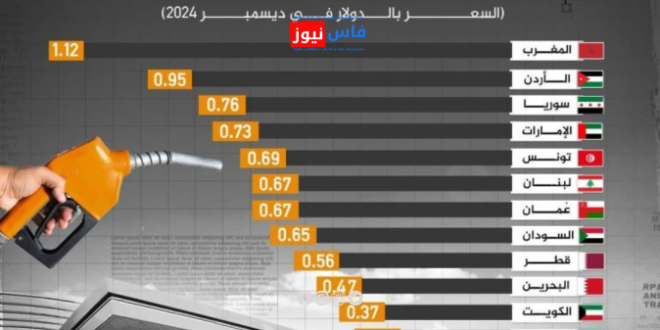A recent report by “Global Petrol Prices” has revealed a significant disparity in diesel prices across Arab countries, with Morocco topping the list at $1.13 per liter. In contrast, Libya recorded the lowest price at $0.031 per liter, followed by Algeria at $0.22 per liter.
This vast price difference has sparked widespread debate about the reasons behind Morocco’s high diesel prices compared to other Arab nations. Despite not being an oil-producing country, Morocco’s current fuel pricing policies expose significant market imbalances.
Since the liberalization of the fuel sector in 2015, Moroccans have experienced frequent price increases, often attributed to global price fluctuations. However, the market lacks transparency and fair mechanisms for determining profit margins. The absence of effective government oversight has allowed companies to reap substantial profits at the expense of citizens.
This situation has raised questions about conflicts of interest, particularly given the Prime Minister’s direct involvement in the fuel sector through ownership of one of the largest companies operating in the market. This has intensified citizens’ feelings of injustice and lack of transparency.
To address this crisis, urgent action seems necessary. In this context, the Moroccan Competition Council recently announced a fine of 1.84 billion dirhams ($180 million) on nine fuel companies operating in the country for non-compliance with free competition rules and involvement in price fixing.
There is also a need to review tax policies and enhance competition to ensure fair pricing. The report highlights the significant gap between fuel prices in Morocco and other Arab countries, calling for comprehensive reforms to protect citizens and restore balance to the sector.
It’s worth noting that Morocco has already begun implementing subsidy system reforms since 2012, aiming to reduce the burden on the general budget and achieve greater fairness in subsidy distribution. However, it appears that further reforms are needed to ensure citizens benefit from these changes and to strike a balance between corporate interests and consumer needs.
 فاس نيوز ميديا جريدة الكترونية جهوية تعنى بشؤون و أخبار جهة فاس مكناس – متجددة على مدار الساعة
فاس نيوز ميديا جريدة الكترونية جهوية تعنى بشؤون و أخبار جهة فاس مكناس – متجددة على مدار الساعة













